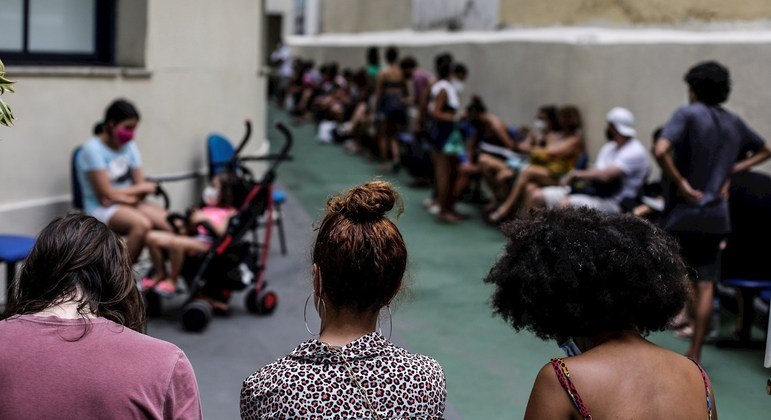The technical group at the Public Headquarters for Election Observation in Moscow published on Friday a report on the verification of the results of remote electronic voting (DEG) in the elections to the State Duma. Having studied the versions put forward by politicians and experts about possible falsifications, the group came to the conclusion that it is impossible to talk about violations during the DEG on the basis of the available data. At the same time, these data themselves, the report notes, were incomplete. Experts intend to continue studying the algorithm of the re-voting option, which led to a long delay in the publication of the election results.
The head of the Public Headquarters Alexei Venediktov informed September 23, on the eve of the CEC summing up the final results of the elections. The reason for this was the distrust of a number of politicians and experts in the results of the DEG, which greatly adjusted the overall voting results in favor of the candidates supported by the authorities who won in all 15 single-mandate constituencies. The group was headed by a member of the Public Chamber of Moscow, an IT expert Vladimir Chernetsky, it also included DEG expert Dmitry Kuznetsov, co-chairman of Golos (entered by the Ministry of Justice in the register of foreign agents) Grigory Melkonyants, electoral expert Dmitry Nesterov, programmers Evgeny Fedin and Alexander Khovanskiy, member of the PEC DEG Denis Sibeldin.
The technical group divided its report into several chapters in accordance with the main complaints about the DEG.
The first block of questions is related to re-voting (option “deferred decision” available only in the Moscow DEG system to protect against expression of will under pressure from third parties). As Ms Bryukhanova pointed out, because of this option, the pro-government candidates lost no more than 7-8% of the vote, while their rivals – about 12%, which was considered by the ex-candidate’s team as evidence of “electronic stuffing”. The technical group therefore notes that this analysis can be misleading, as it is impossible to distinguish specific chains of re-voting from published data, including cases where a voter has voted for the same candidate multiple times. Experts believe that one of the possible reasons for this behavior is the “delusion of voters” who believed that re-voting would increase their chances of winning in the “Million Prizes” program held for DEG participants.
The second topic for analysis was “statistical anomalies in voting at different time intervals” . Anastasia Bryukhanova’s team recorded a sharp increase in the number of electronic votes in favor of its main rival Socialist-Revolutionary Galina Khovanskaya over several periods of time, and especially on the last day of elections from 8:00 to 14:00. The authors of the report put forward several explanations for this at once. One of the reasons, in their opinion, could be the queues for waiting for recording to the blockchain, which arose due to a drop in speed due to the high load on the system in the first hours of voting (the group additionally requested information on monitoring the software queue for recording votes in the blockchain for further research ).
And experts considered the activation of the supporters of certain candidates on September 19 as a consequence of SMS-mailings reminding of the last day of elections and “other possible mobilization actions.”
And this does not apply only candidates from the authorities, the report says: “For example, the peak for opposition candidates closer to the end of the voting fits into the strategy of voting in the last hours so that the vote is not stolen.”
Experts also answered Ms. Bryukhanova on the participation in the DEG of “virtual voters” . This conclusion was prompted by the difference in turnout between the majority of voters (about 95%) and about 100 thousand voters entered in the register in successive blocks (80%). According to the politician, these are the “bots”, and the turnout of 80% was chosen based on the indicators of municipal by-elections in 2020 in several Moscow districts. The technical group offered another explanation: a lower turnout was demonstrated by Muscovites who registered for the DEG through the State Services portal, since it was technically more difficult for them to vote than those who registered through the Moscow website mos.ru, where, moreover, “a more active information campaign was carried out”.
Experts also remind that verification of personal data of voters was carried out using several databases, and for voting it was necessary to enter a code from an SMS message.
“Thus, re-voting for a voter by any third party is possible only if the personal account data on the mos.ru (or EPGU) portal is stolen, as well as physical access to the voter’s phone to receive authorization SMS, which seems extremely unlikely, “the authors of the report believe.
However, they stipulate that the group did not have the opportunity to additionally check the versions about the presence of “virtual voters”, so in the future there will be a re-verification procedure has been developed for the verification of voters’ data. According to Anastasia Bryukhanova’s calculations, there were more than 13 thousand of them in her district alone. The technical group adjusted this number to 11.7 thousand (8.89% of the number of issued electronic bulletins), but admitted that this is a “rather high figure”, especially compared to regular voting in the same constituency, where only 0.42% of paper ballots were missing. “However, it is much more difficult to take out the ballot from the regular site than to close the e-ballot window or face a disconnection,” the authors of the report emphasize.
In the end, the technical group decided that draw conclusions about the presence of irregularities during the operation of the DEG system that influenced the final voting result. ” insufficient size of statistical samples and “mobilization of voters of a particular candidate or party”. At the same time, the experts pointed out that the data available for analysis were incomplete and “on their basis, it is impossible to independently carry out all the calculations implemented by the DEG system algorithms.” under the leadership of Grigory Melkonyants, who is to present her big report by the end of the year. The technical group will also continue to work and, in particular, will study the correctness of the re-voting algorithm.
Elena Rozhkova, Andrey Vinokurov
Note: This article have been indexed to our site. We do not claim ownership or copyright of any of the content above. To see the article at original source Click Here











